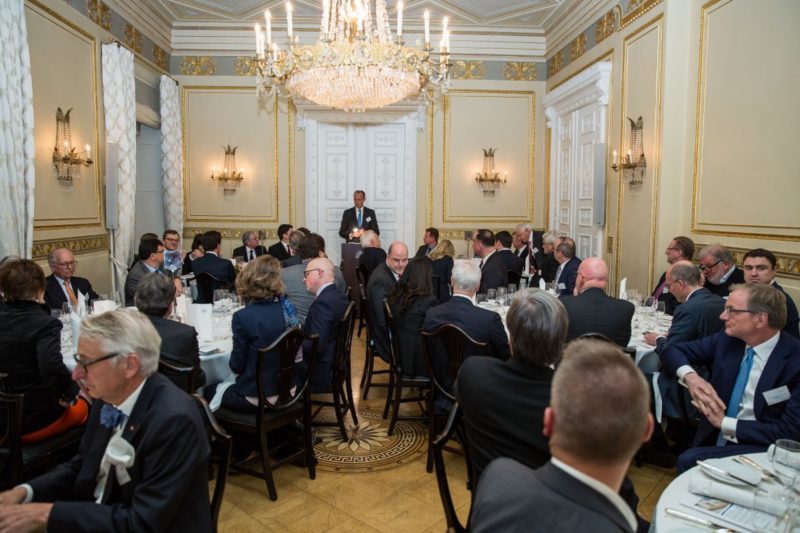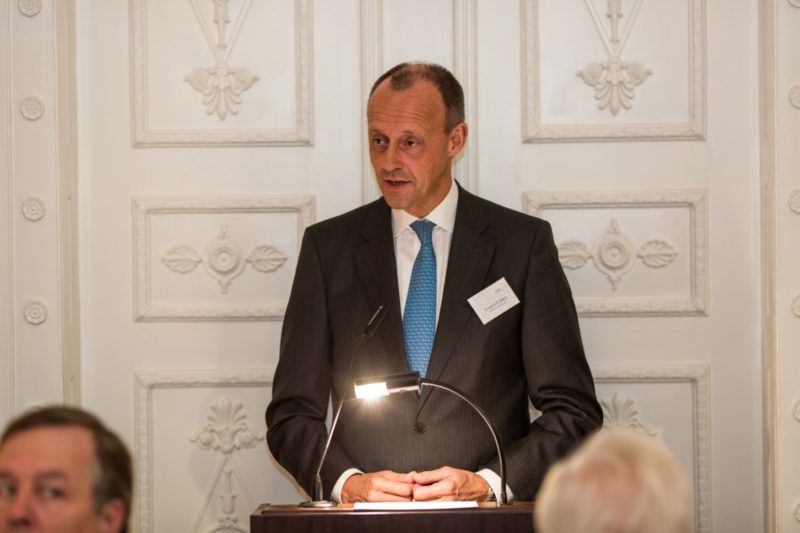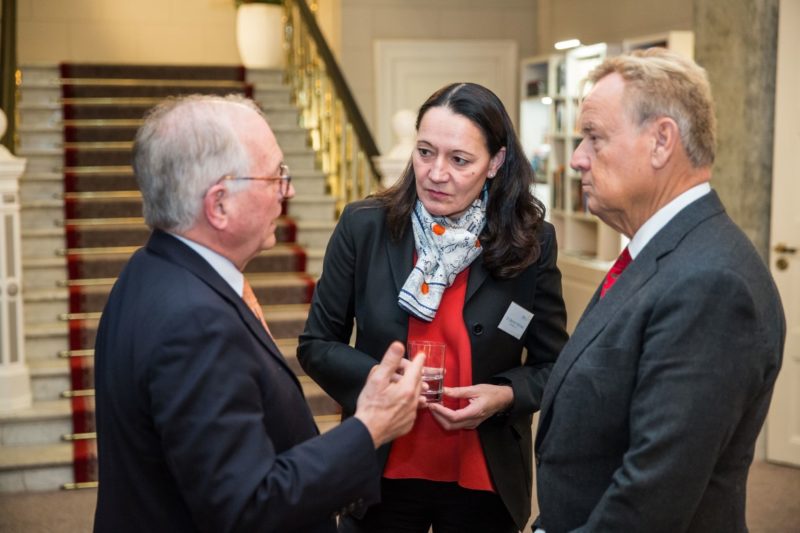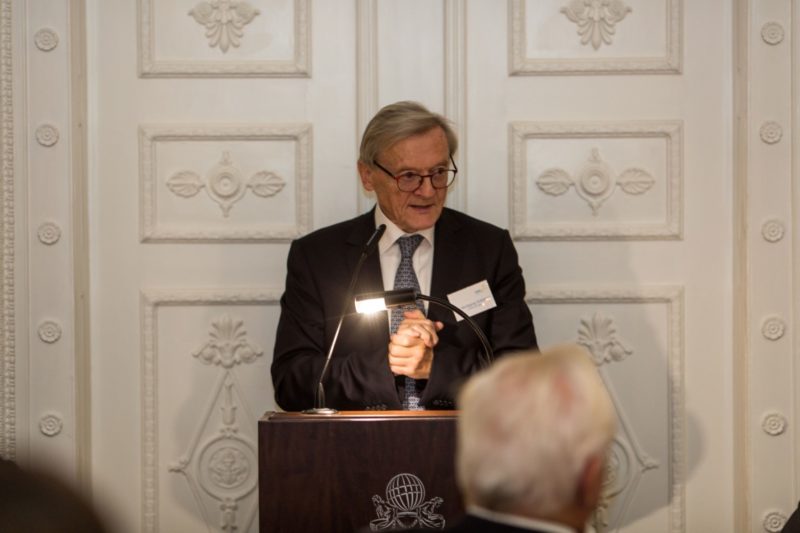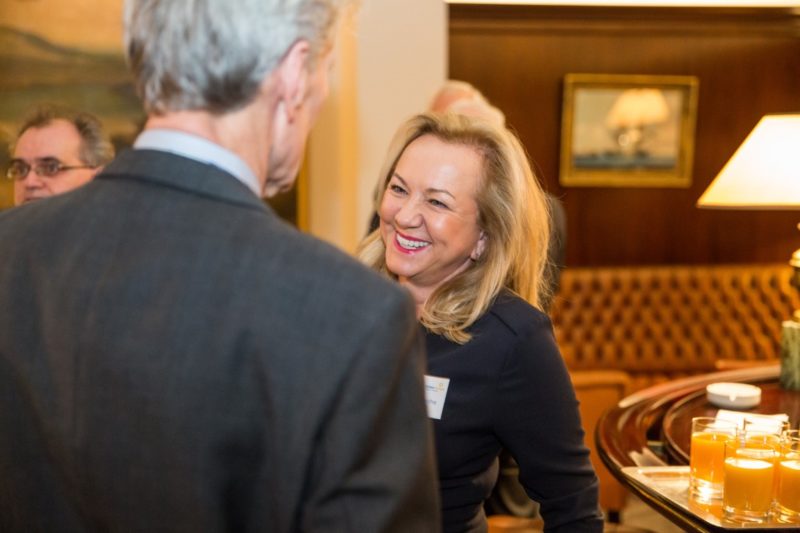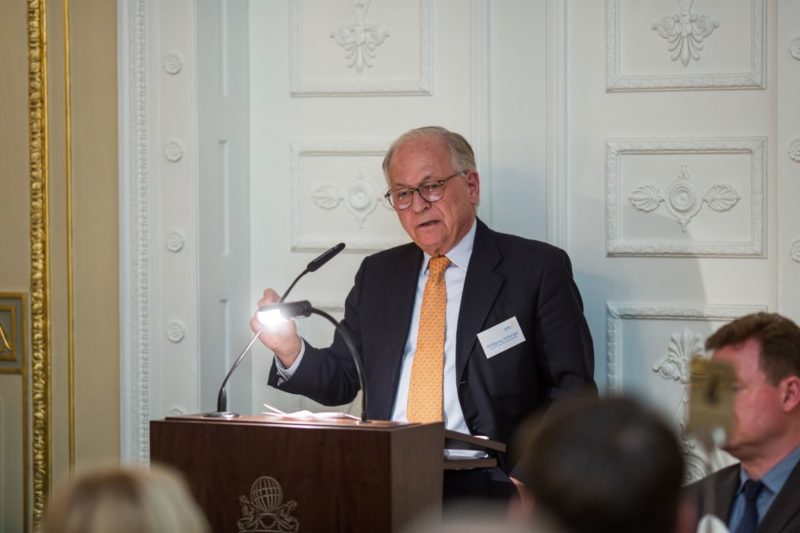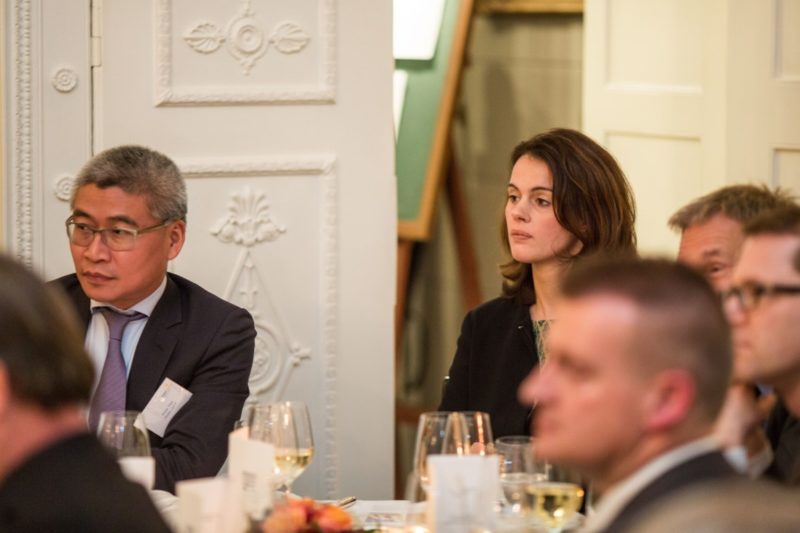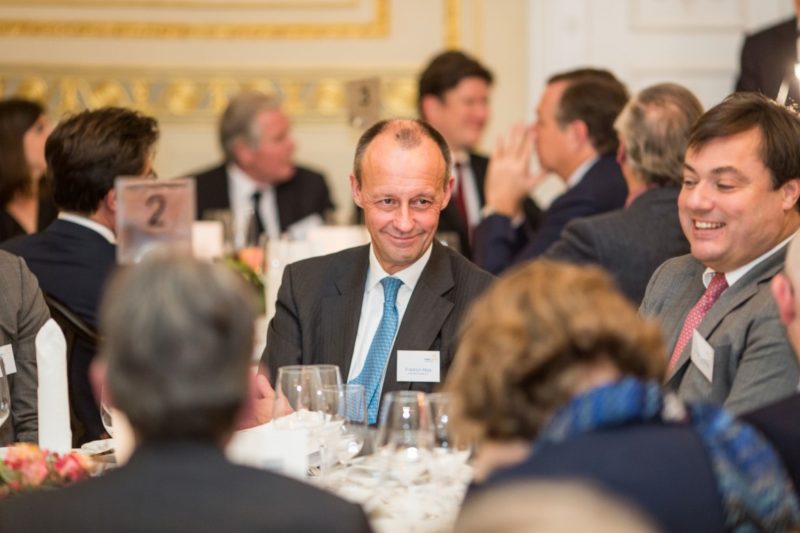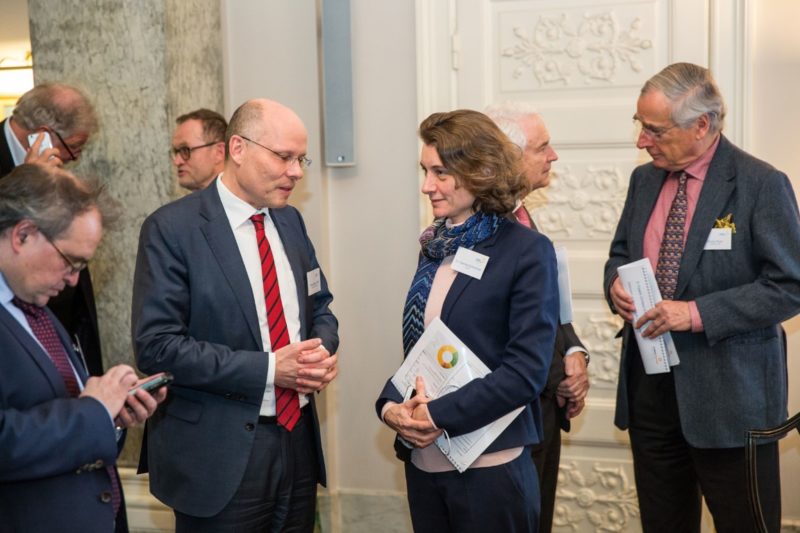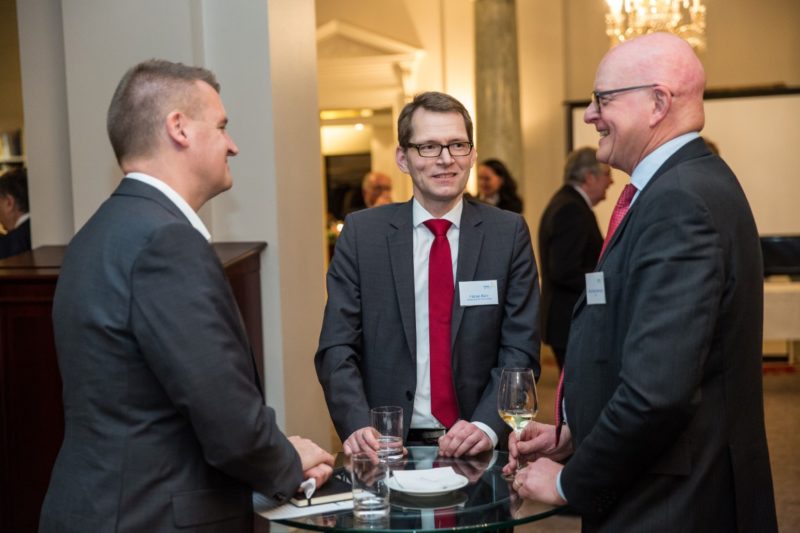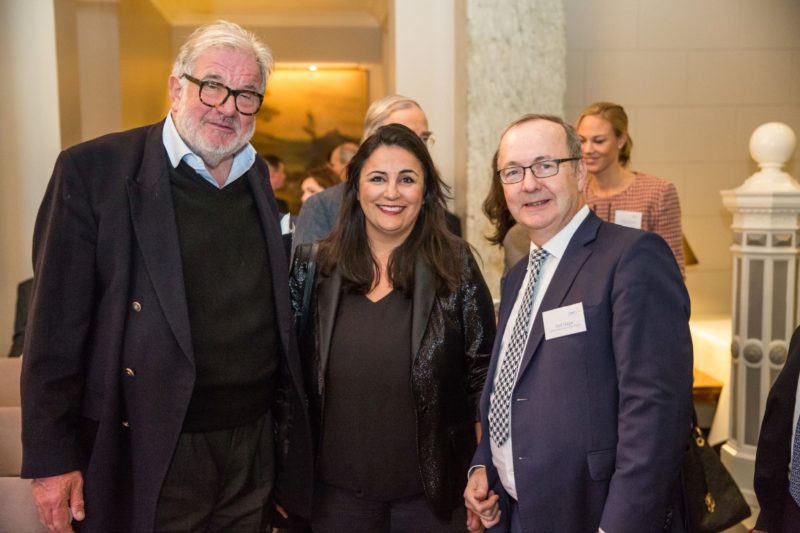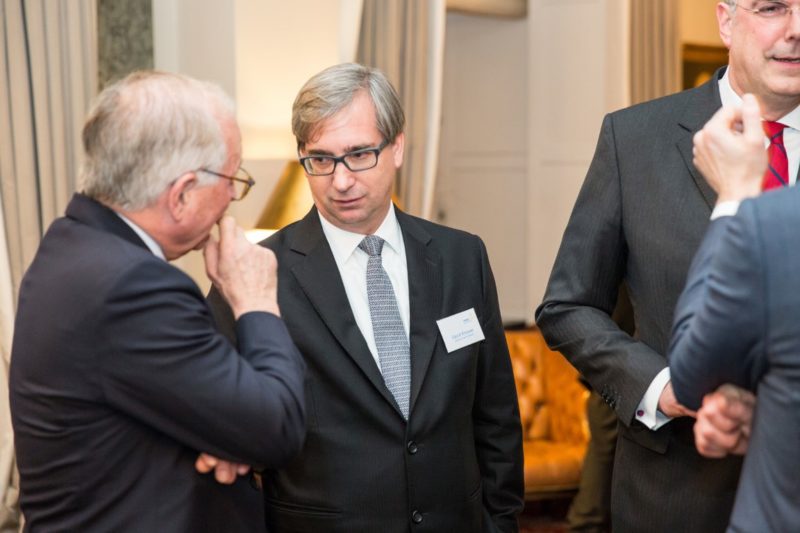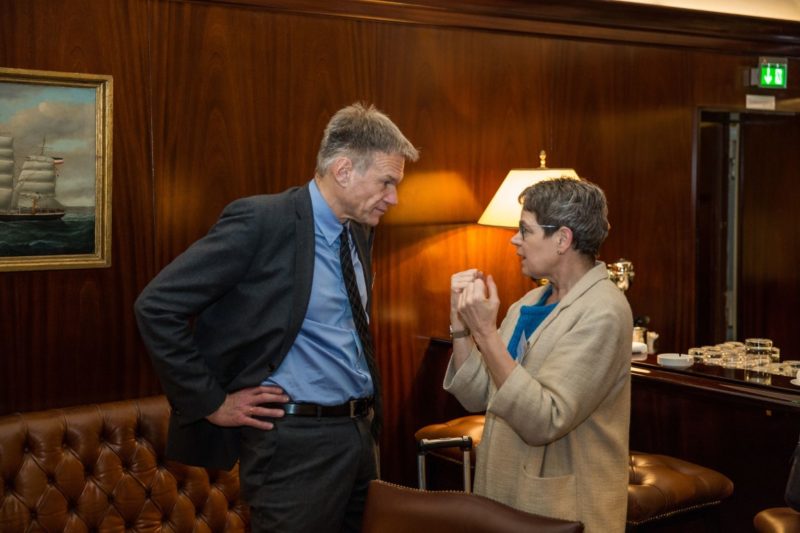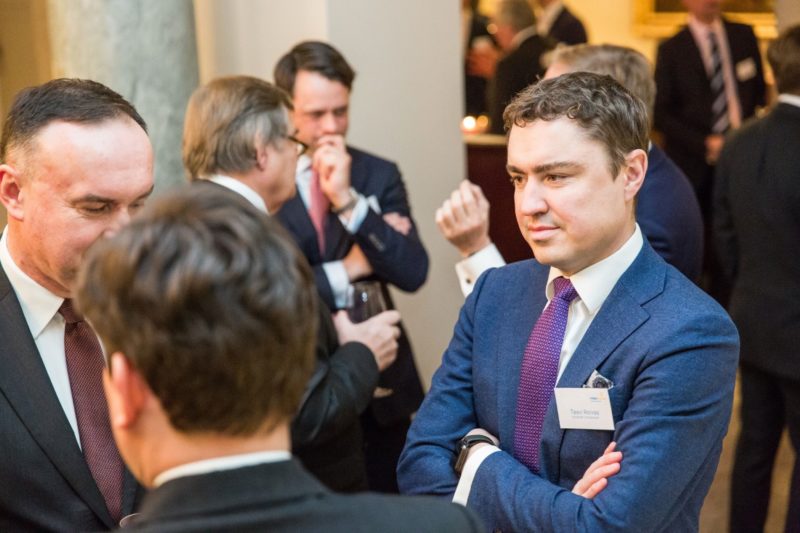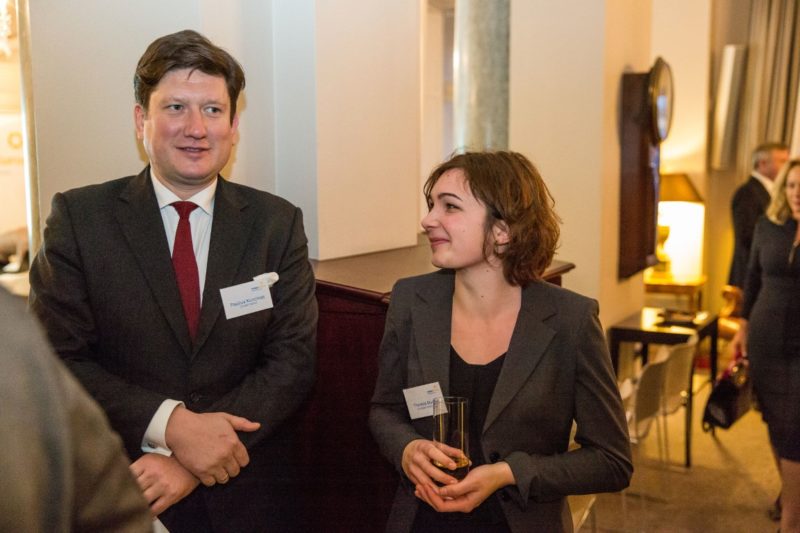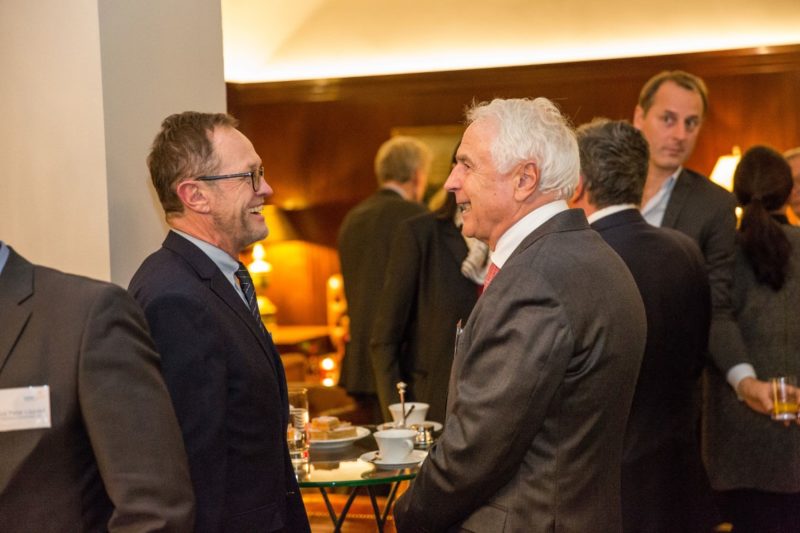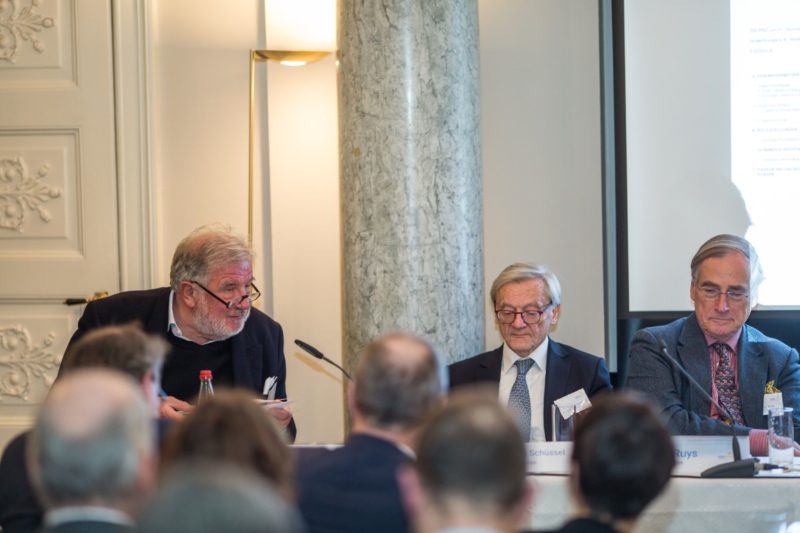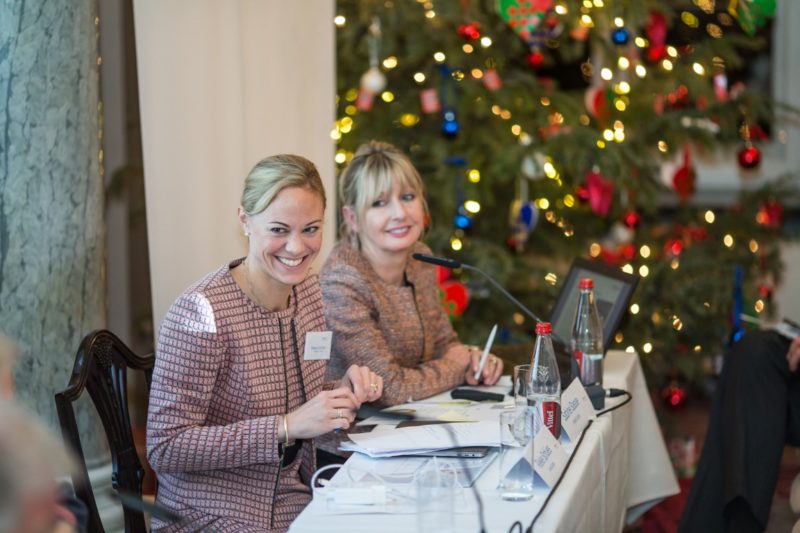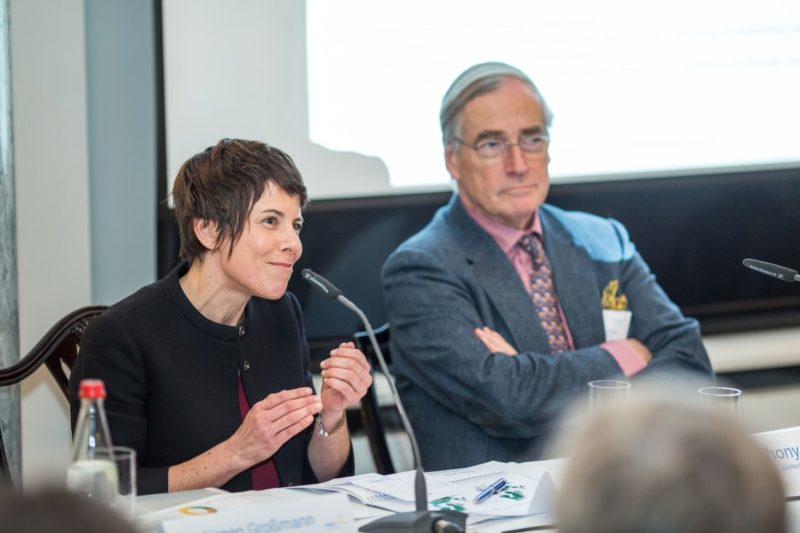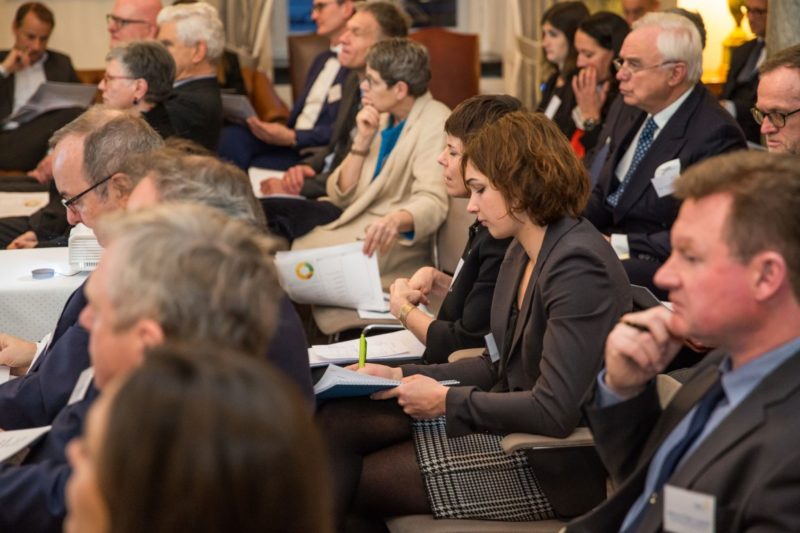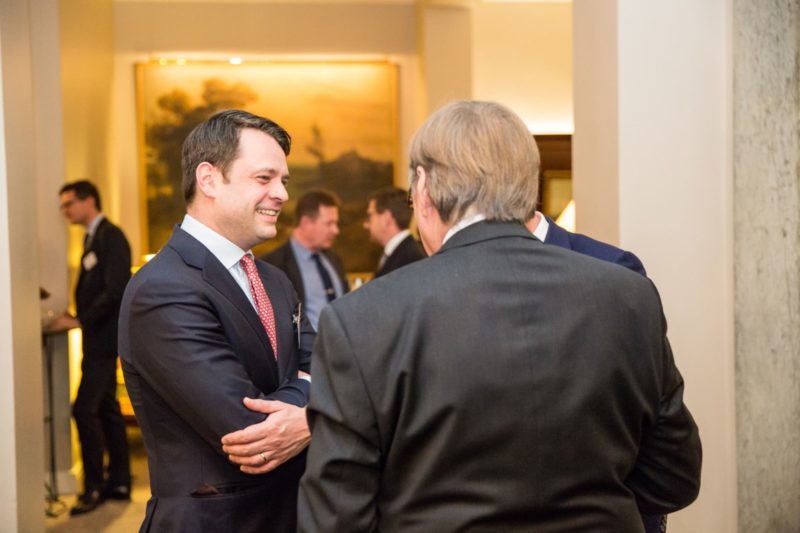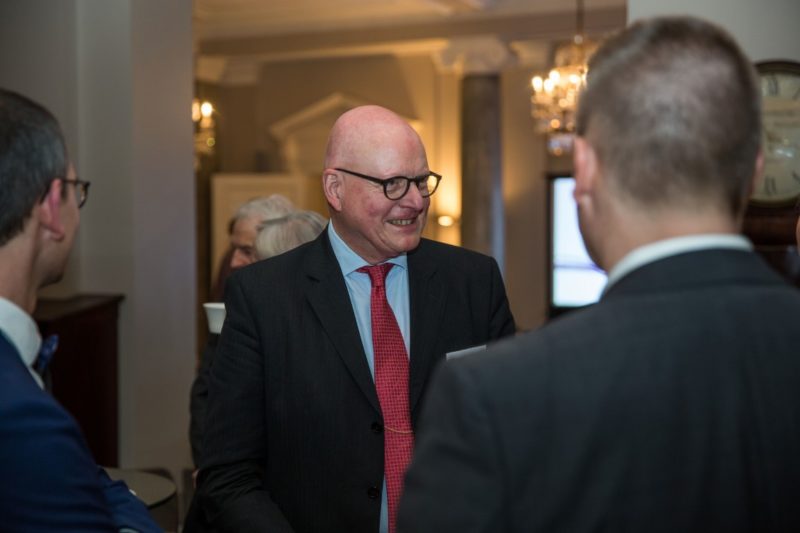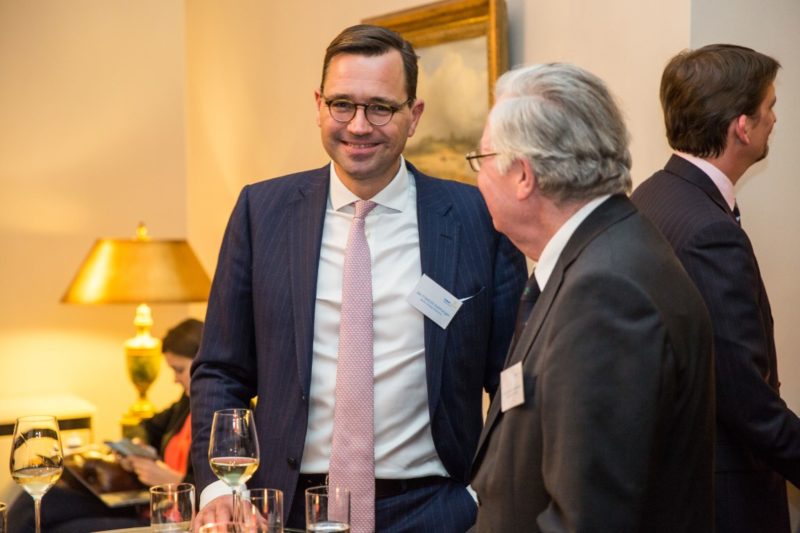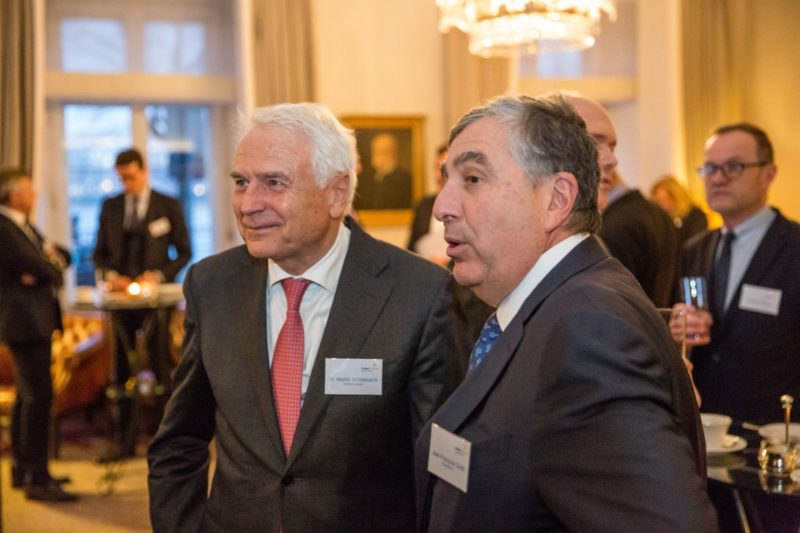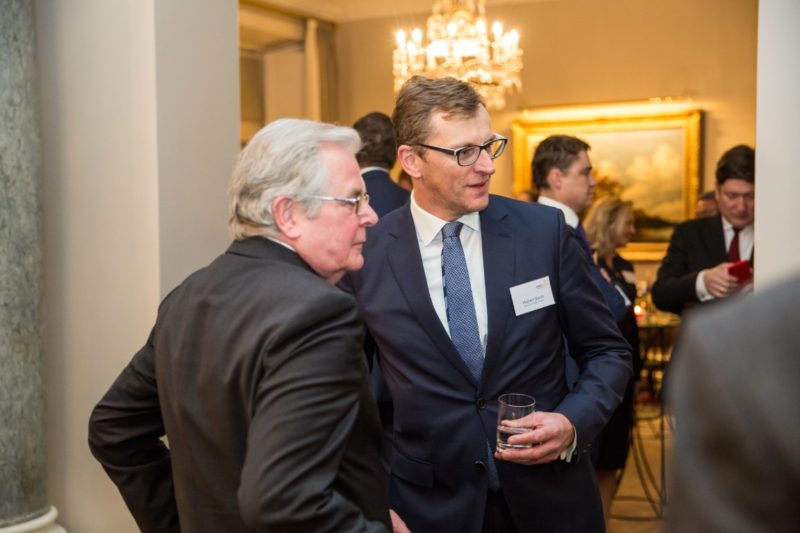Europe in need of self-criticism and joint action: Conclusions from United Europe’s CEO Roundtable on 17th December in Hamburg. The event took place in co-operation with Atlantik-Brücke under Chatham House Rules.
Donald Trump’s presidency has been a wake-up call for Europeans: by highlighting new challenges, it strengthened the need for greater regional cooperation. During our CEO Roundtable in Hamburg on December 17, CEOs, politicians and academics discussed different ways for European countries of establishing better relations among one another. Renowned foreign policy experts emphasized the need to have an effective mechanism in place that would allow Europe to decide, act and shape global politics together.
After welcome speeches of Wolfgang Schüssel, President of United Europe, and Friedrich Merz, Chairman of Atlantik-Brücke, Ambassador Wolfgang Ischinger, Director of the Munich Security Conference and author of the book “World in Danger”, opened the discussion with a pointed keynote about the current political situation and the challenges for the EU and Europe given the crumbling transatlantic relations with the USA. Impulses were given by Taavi Roivas, former Prime Minister of Estonia and member of the Estonian parliament, Michal Kobosko, Senior Advisor at Atlantic Council and Director of the Wroclaw Global Forum, Poland, and Peter Beyer, Coordinator of Transatlantic Cooperation at the Federal Foreign Ministry, Germany.
No more security outsourcing
Europe finds itself in a difficult position, the participants agreed. It was ill-prepared for Donald Trump’s presidency and actions, as the new approach from the White House signals a new era in Transatlantic relations. Donald Trump changed the way American presidents used to perceive NATO and Western defense system, making European governments doubt the role of the US as a partner. However, that also made them realize they needed to invest more into their own security.
The experts pointed out how bizarre it had become until now, with Europe having outsourced its own security to a partner across the Atlantic. Rarely European leaders spoke about the need to defend themselves or create a strong European army that would prioritize regional defense. In this case, Trump’s stance on European security was an actual reminder for the EU leaders to focus on their own safety more and invest more instead of relying on others.
The need to be more self-critical is an important part of this new world order. EU leaders ignored the defense issue for too long, now needing to create a dialogue with the Americans and make a defense strategy a joint priority.
Acting together
It is time to stand up and defend the European way of life, experts said during the discussion. We can no longer trust alliances and international treaties and their predictabilities. The alternative is developing a European strategy. We have to be flexible and get everyone on board including those who don’t agree with everything within the EU. We have to be a strong voice on the international scene.
The experts agreed that the EU is taken seriously only when it approaches the US as a joint force. If the EU wants to negotiate with the US and other global partners, it needs to have a common strategy and reach decisions together. When the EU member states act alone, they do not only challenge the authority of the EU but also belittle the European cause and make the EU look like a less important world player.
Only after the EU develops a working mechanism to act together quickly and make important decisions on the global scale can it develop its own army. Currently, the EU lacks a meaningful foreign policy and military decision-making apparatus, and the EU ambassadors around the world often don’t receive instructions from Brussels. While the roundtable participants had ambiguous views on the European army, the majority agreed: developing this project now is a challenging idea, whilst the EU does not yet have a working system in place.
Instead, the EU needs to invest more into local defense as frontier states feel less secure due to Russia’s actions in the region. Furthermore, the EU has to work together when it comes to challenging energy issues and cut its dependence on one source only. This is especially evident as trade wars happen, and large country suppliers use their natural resources to influence the EU (like the case of Russia and Nord Stream 2).
Finally, working together means taking all voices into consideration so core European states like France and Germany need to listen to smaller and newer EU members. As experts agreed, Germany has been successful in doing it for the most part, i.e. putting the idea of Europe first, and this approach should be expanded.
US – EU relations need to be reevaluated
Although Trump’s presidency is a challenge for the EU, there is so much more that unites the US and Europe. Currently, very few Europeans are optimistic about Donald Trump. However, as experts pointed out, instead of focusing too much on Trump’s role, more emphasis needs to put on trade and partnerships that exist between the EU and the US.
The participants emphasized: a “Transatlantic divorce” would be disastrous for all as the existing trade between the US and the EU is worth 1.3 trillion Euros. As the largest partnership in the world – by far, larger than the partnerships China has, – it has to be strengthened. Foreign Direct Investment is another backbone of the relations between the US and the EU, so economic relations should be expanded and prioritized.
Ending cooperation with the US would produce a terrible hit on the EU economy and vice versa, so this is absolutely to be prevented. The US/EU nuclear cooperation is equally very important. Also, many countries in Europe still want to keep a US presence in the region as a possible insurance for enhanced security and for historic reasons, so these links should not be undermined. American soldiers in Europe are seen as a good development by many European governments, which is something that the current White House administration is supporting. American policy makers should thus not be perceived solely along black-and-white terms, but the focus should rather be on those elements of the Trump administration where cooperation might still be possible.
The experts concluded that there was a need to remind America about its commitments and dissuade it from using the dollar as an economic weapon. The EU on its side needs to be an example of fighting extremism and stand up for its Western democratic values, now that the US under Trump does not. The EU has to remain the voice of democracy yet maintain strong economic ties with the US.
Understanding difficult times
As the EU is experiencing various challenges, it is important to assess these and address them together, it was concluded. Solutions should come from new deals, partnerships, and projects. The participants raised the possibility of conducting more initiatives together with Americans and investing into joint activities. The EU is expanding its cooperation with China – but still focusses on the partnerships and ties within the union itself, in order to remain a strong union and interesting trading block with similar or equal powers. This should remain the position vis-à-vis the USA as well.
The participants concluded: these are challenging times with increasing threats to our security, respect of international law, foreign policy approaches, in short, a questioning of the international order and policy frameworks that have underpinned European economic and political stability since the end of the second world war and the EU does not have ready solutions to all of those. What’s making matters worse is the lack of a unified voice and a mechanism to present it.
However, having the EU as a block of peaceful partners is already an achievement in itself that needs to be maintained and improved. The EU has to come up with a single foreign policy strategy and focus more on its defense while keeping its economic partnerships and trade with the US. It has to be self-critical and improve from within yet maintain a strong presence on the global scene.



